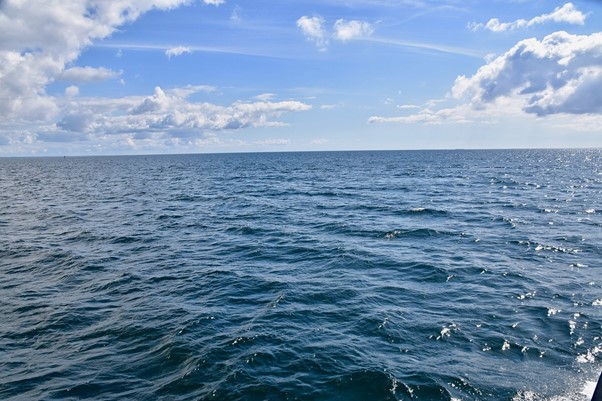OCEAN DECADE BEGINS
I am returning to work today after the Christmas break and following a yearlong sabbatical. The start of the year marks the kick-off of an amazing new initiative aimed at using the study of ocean science to inform us about climate change. The launch of Ocean Decade is an exciting initiative for scientists and policy makers, managers, and marine services to work together to ensure that ocean science delivers greater benefits for both the ocean ecosystem and for society.
Ocean Science is a vast area of study that combines a variety of disciplines such as physical, geological and chemical oceanography as well as marine biology providing data on the global marine environment. The topics include marine organisms, ecosystem dynamics, ocean currents, waves, geophysical fluids dynamics, plate tectonics and the geology of the sea floor as well as fluxes of chemical substances and physical properties within the Ocean and across its boundaries.
On 5 December 2017, the United Nations initiated a vision of a decade of ocean science for sustainable development to be held from 2021 to 2030. “This Decade[1] aims to provide a common framework to ensure that ocean science can support countries’ actions to sustainably manage the Oceans and more particularly to achieve the 2030 Agenda for Sustainable Development.”
Ocean Science has evolved to tackle societal needs, encouraging new partnerships among oceanographers working in different disciplines. The value of this work has never been so great as now – as it is leading to new discoveries about the ocean’s role in climate regulation and coastal ocean processes.
The Decade will provide a framework for achieving a number of high level scientific outcomes, these may be clustered around:
- Comprehensive digital atlas of the ocean
- Comprehensive ocean observing system for all major basins
- Quantitative understanding of ocean ecosystems and their functioning as the basis for their management and adaptation
- Data and information portal
- Integrated multihazard warning system
- Capacity building and accelerated technology transfer, training and education, Ocean literacy
- Ocean in earth-system observation, research and prediction, supported by social and human sciences and economic valuation
The Water Institute aims to build on and establish research projects that align with the objectives of the Decade. Already a number of projects are underway in the Water Institute that align well with the scientific outcomes listed above:
TechOceans is an H2020 project developing biosensor technology to monitor chemicals in the ocean. DCU WI is a partner organisation involved in biosensor development using antibody based technologies and environmental DNA. Ocean observing can only be realised by improving the technology we use to measure and interrogate the environment.
The Marine Institute’s funded Beyond2020 project is a cluster project that involves DCUs development of an eDNA sensor and a nutrient analyser for observations in the Burrishoole lakes. This project is aiming to improve understanding of the ecosystem in terms of primary production, biota, nutrient fluxes and changes over time.
The MartERA project Nemo is a collaborative project developing sensors based on synthetic antibodies for measurement of chemicals in the marine environment.
The iSECURE project is working to gather data on the occurrence of chemicals in the marine environment including biota – to have a better understanding of the health of the ecosystem. This project also aims to build capacity in this area and develop a data management platform for data sharing.
Our involvement in the Irish Ocean Literacy Network helps to grow the discussion about the marine environment among a broad stakeholder network.
We plan to enhance our understanding of the ocean through collaborative projects, developing new technologies, building capacity and improving ocean observations.
[1] https://www.oceandecade.org/about?tab=our-story


Recent Comments